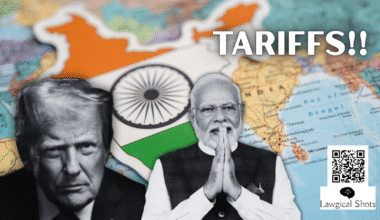Citizenship refers to the legal status of being a member of a sovereign State, whereby a person enjoys specific rights and bears corresponding duties and obligations towards that State. In the context of India, citizenship is a foundational concept enshrined in the Constitution and further elaborated under statutory law. Citizens of India are entitled to certain fundamental rights that are exclusively available to them, such as the Right to Equality (Articles 15 and 16), the Right to Freedom of Expression (Article 19), and Cultural and Educational Rights (Articles 29(1) and 30) under Part III of the Constitution.
In addition to these fundamental rights, every Indian citizen is expected to fulfil certain Fundamental Duties. Article 51A of the Constitution of India enumerates eleven Fundamental Duties, which create moral as well as constitutional obligations aimed at reinforcing the spirit of patriotism and upholding the constitutional order. Citizenship makes a lot of difference when it comes to exercising rights in a country. So, who can be a citizen of India? Only those born here? Let’s break it down for better understanding.
Who can be a Citizen of India?
To acquire Citizenship of any country, usually there are two doctrines: Jus Soli, which means citizenship by birth within the territory, and Jus Sanguinis, which means Citizenship by Descent. Indian citizenship is granted through a combination of both birthright and naturalization, allowing individuals to acquire citizenship based on birth, descent, or naturalization.
Constitutional foundation for Indian citizenship
In India, Part II (Articles 5-11) of the Indian Constitution deals with the provision of citizenship; these provisions are transitional and came into force with the commencement of the Constitution of India on 26 January, 1950.
Article 5: Citizenship at the commencement of the Constitution
Article 5 provides for citizenship based on domicile [Residing] in the territory of India for someone:
- Who was born in India, or
- either of whose parents was born in India, or
- who had been ordinarily resident in India for not less than 5 years immediately preceding the commencement,
shall be a citizen of India.
Article 6: Rights of citizenship of certain persons who have migrated to India from Pakistan.
This Article provides a mechanism for a person who has migrated to India from Pakistan, but with certain conditions, such as migration before July 19, 1948, or possessing a permit for permanent resettlement in India.
Article 7: Rights of citizenship of certain migrants to Pakistan.
Article 7 provides for citizenship for a person who migrated to Pakistan after March 1, 1947, but is willing to return to India under a permit for resettlement or permanent return issued by or under the authority of any law.
Article 8: Rights of citizenship of certain persons of Indian origin residing outside India
Persons of Indian origin, whose parents or any of whose grandparents were born in India as defined in the Government of India Act, 1935, residing outside India, willing to acquire Indian Citizenship can acquire it by registration with a diplomatic or consular office in the residing country.
Article 9: Persons voluntarily acquiring the citizenship of a foreign State are not to be citizens.
The person who acquires the citizenship of another country will no longer be deemed to be an Indian citizen, as India does not recognize dual citizenship.
Article 10: Continuance of the rights of citizenship
Any person who can be a citizen of India is subject to provisions of any law that may be made by Parliament, continues to be such a citizen. This Article regulates the right of citizenship and termination by law.
Article 11: Parliament to regulate the right of citizenship by law
Under Article 11, parliament is empowered to make any provision concerning the acquisition and termination of citizenship and all other matters relating to citizenship.
Legislative Framework for Indian Citizenship
Parliament, in the context of citizenship, is empowered to enact legislation supporting the Constitutional mandate. The Citizenship Act, 1955 serves as a comprehensive governing framework for Indian Citizenship. Based on the Act, which has been amended multiple times to meet evolving needs, Indian citizenship can be divided into the following modes:
- Citizenship based on birth:
Under Section 3, Citizenship based on birth applies to:
a) Persons born in India between January 26, 1950, and July 1, 1987, irrespective of the nationality of their parents,
b) Persons born between July 1, 1987, and December 3, 2004, but either of their parents has to be an Indian citizen at the time of the birth, - By Descent
Under Section 4 of the Act, Children born outside India:
a) Between January 26, 1950, and December 9, 1992, but the father was a citizen of India.
* Between December 10, 1992, and December 3, 2004, either of the parents was a citizen.
* After December 3, 2004, after birth has to be registered at an Indian consulate within one year of birth, and neither parent is an illegal migrant. - By Registration:
Under Section 5, the Central Government may register a person as a citizen of India if:
a) Person of Indian origin who is ordinarily resident in India for seven years before making an application for registration,
b) Married to a spouse who is an Indian citizen and married for 7 years and residing in India,
c) Minor children of Indian citizens,
d) An Indian origin person residing abroad. - By Naturalisation
Under section 6 of the act, any foreign national can acquire Indian citizenship by naturalisation if:
Application is made in the prescribed manner by the Central Government, by any person not being by minor and an illegal immigrant:
a) Such person is ordinarily resident in India for 12 years out of which one (1) year is continuous before making the application and eleven (11) years aggregate.
b) Such a person has to renounce their previous country’s citizenship - By Incorporation of Territory
Section 7 provides for the cases in which incorporation of new territory into India, the Government may specify the persons who shall become citizens of India.
Recent Amendments and Contemporary Developments in Citizenship Law
The Citizenship (Amendment) Act, 2019, is the last significant and controversial development in the Citizenship Act. The Citizenship Act Amendment has relaxed norms for the Naturalisation requirement from eleven (11) years to five (5) years for six communities: Hindus, Sikhs, Buddhists, Jains, Parsis, and Christians who entered India on or before 31 December 2014 from three countries namely- Afghanistan, Bangladesh, or Pakistan, to acquire Indian citizenship, even if they were previously regarded as illegal migrants, while the Citizenship Act per se bans illegal immigrant.
This recent amendment has been challenged in the Honourable Supreme Court based on a violation of Article 14 (Right to Equality) and 21 (Protection of Life and Personal Liberty) of the Indian Constitution, as the Act is not inclusive for not including Muslims in the eligibility list.
Conclusion
To determine who can be citizen of India requires a complex interplay of the Constitutional, legislative, as well as administrative, which has evolved post-independence of India by democratically elected people’s representatives in the Parliament of India empowered by the Constitution, to meet the ever-evolving needs of the time. These changes should uphold the spirit of the Constitution by upholding the principles of non-discrimination and equality.
The answer to who can be a citizen of India has been simplified by our intern, Mr. Parth Rachch. He has been assisting the team in bringing informational legal blogs.








